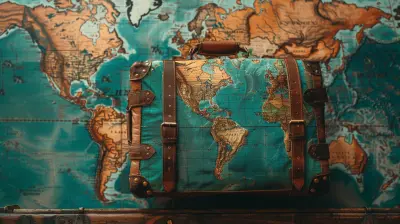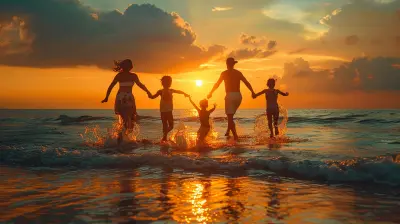Marine Biodiversity and Conservation: An Eco-tourist’s Island Hopping Guide
16 June 2025
Imagine stepping onto a white sandy beach, the sound of waves gently crashing against the shore, and the sight of crystal-clear waters teeming with vibrant marine life. Now, picture yourself on a mission—not just to enjoy nature’s beauty but to protect it. This is the essence of eco-tourism, a journey that lets you appreciate marine biodiversity while actively contributing to its conservation.
Island hopping isn’t just about breathtaking views and Instagram-worthy moments; it’s about immersing yourself in the wonders of the ocean and becoming a guardian of its fragile ecosystems. So, if you’re ready to embark on an adventure that blends exploration with purpose, keep reading. 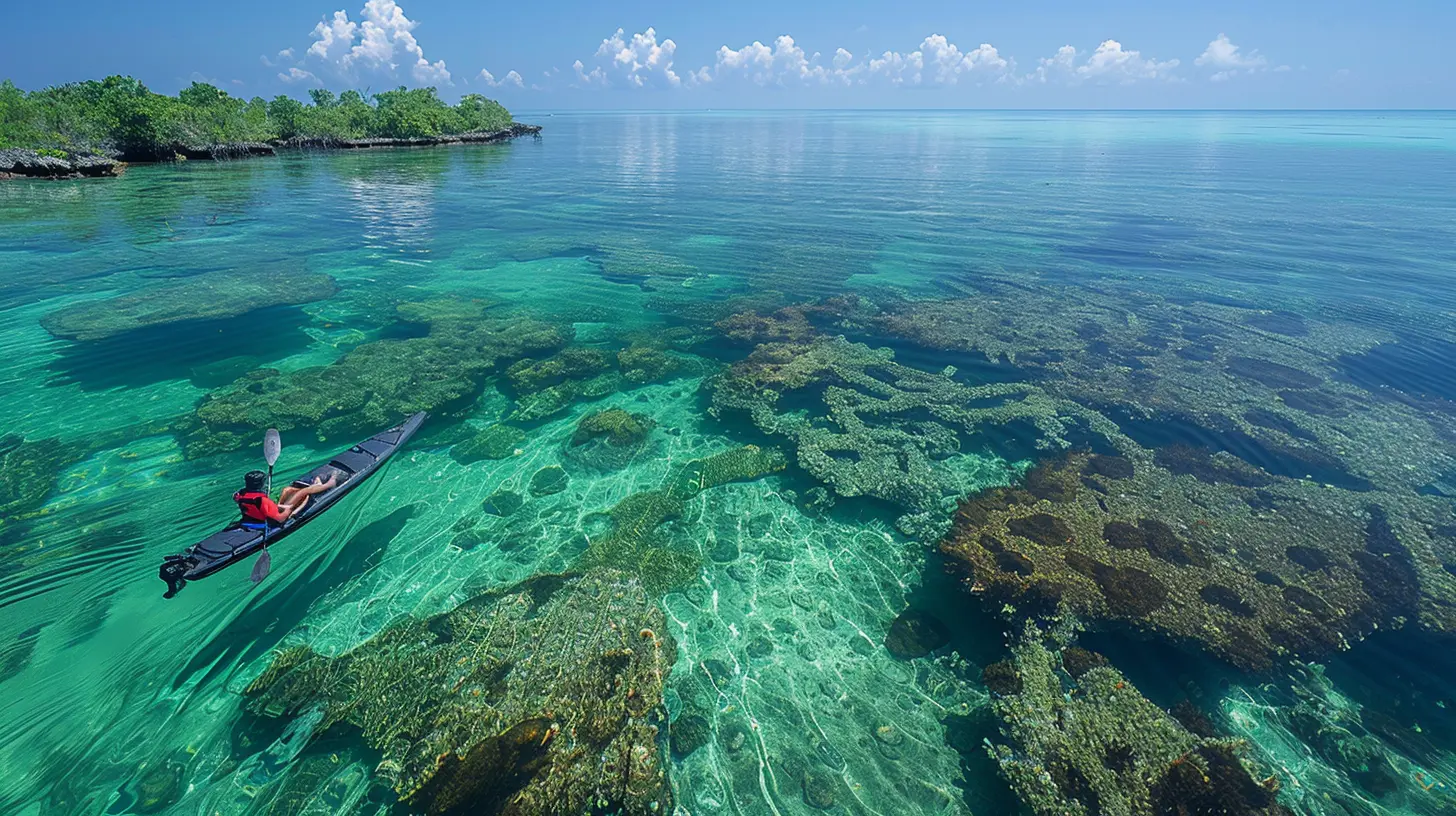
🌊 Understanding Marine Biodiversity
Before we dive into our eco-tourism guide, let’s talk about marine biodiversity.What Exactly Is Marine Biodiversity?
Simply put, marine biodiversity refers to the incredible variety of life found in our oceans, from tiny plankton to massive whales. Oceans cover over 70% of our planet and house around 80% of all life forms. This vast ecosystem includes coral reefs, seagrass meadows, mangroves, and deep-sea trenches—each playing a crucial role in maintaining Earth’s balance.Why Should We Care About Marine Biodiversity?
Think of the ocean as Earth’s life support system. It produces over half of the oxygen we breathe, absorbs carbon dioxide, and regulates climate. But here’s the catch—climate change, overfishing, and pollution are pushing marine ecosystems to the brink. Without conservation efforts, we risk losing species, habitats, and the natural beauty that attracts millions of travelers each year.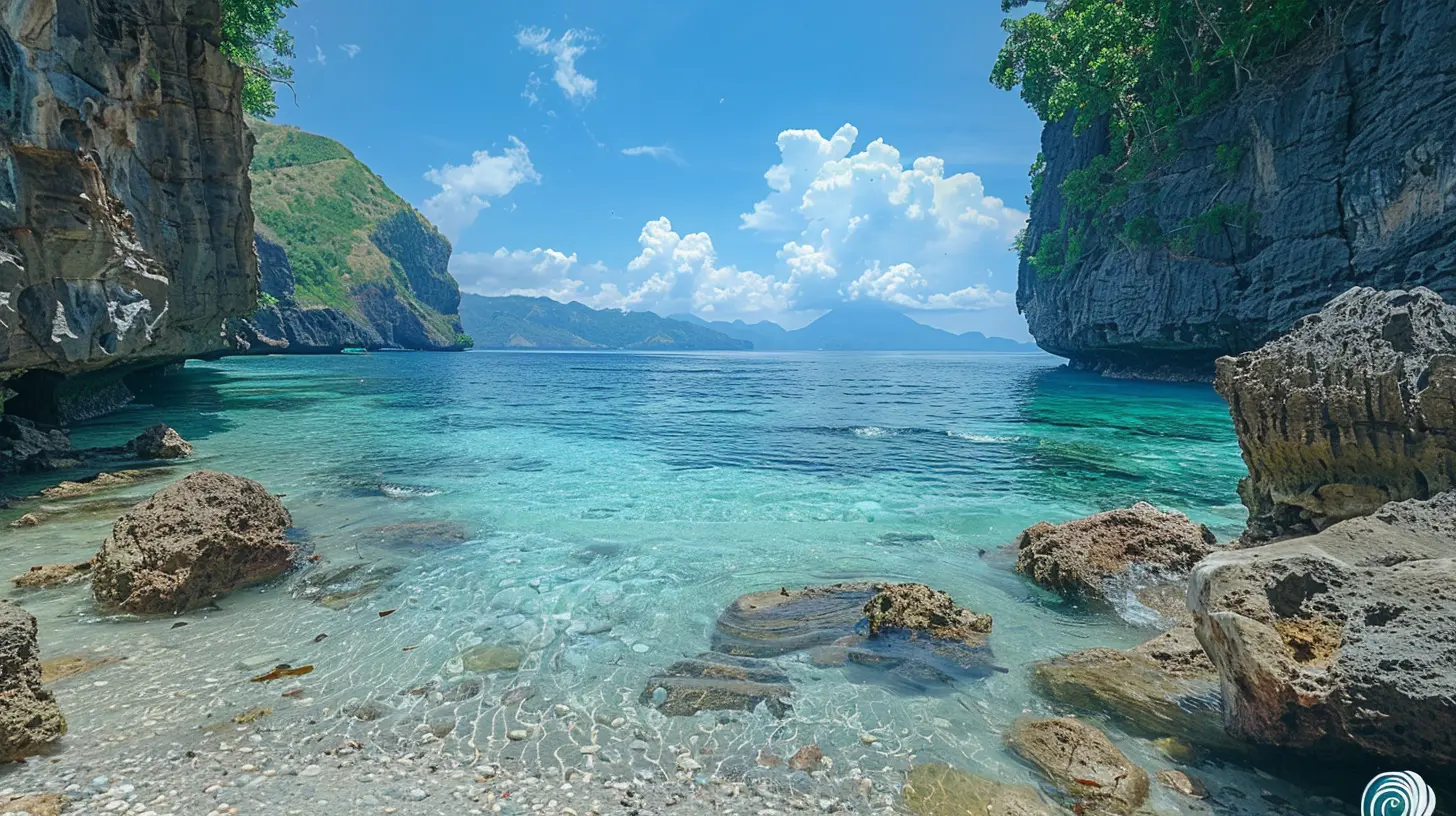
🌴 The Eco-Tourist’s Island Hopping Guide
Island hopping isn’t just for thrill-seekers—it’s for those with a passion for nature and a desire to protect it. Whether you're snorkeling with sea turtles, staying at an eco-resort, or participating in beach clean-ups, your choices can make a difference.1. Choosing Eco-Friendly Destinations
Not all island getaways are created equal. Some destinations prioritize conservation, while others suffer from over-tourism. When planning your trip, look for eco-certified islands, marine-protected areas (MPAs), and sustainable tourism initiatives.Top Eco-Conscious Islands to Visit
- Palawan, Philippines – Home to the protected Tubbataha Reefs Natural Park, one of the world’s most diverse marine sanctuaries.- Galápagos Islands, Ecuador – A UNESCO World Heritage Site with strict conservation rules to protect its unique species.
- Maldives’ Biosphere Reserves – Several islands in the Maldives are dedicated to marine conservation and sustainable tourism.
- Great Barrier Reef Islands, Australia – Efforts are in place to preserve this natural wonder through responsible tourism practices.
2. Supporting Ethical Tour Operators
Not all tour companies prioritize sustainability, and some harm marine life unknowingly. Choose operators that:✅ Use eco-friendly boats with low emissions
✅ Adhere to wildlife interaction guidelines
✅ Support local conservation projects
✅ Limit group sizes to reduce environmental impact
Look for certifications like Green Fins, Blue Flag, and PADI Eco Centers, which indicate responsible tourism practices.
3. Mindful Snorkeling & Diving
Snorkeling and diving let you witness marine life up close, but reckless behavior can cause damage. Follow these simple rules to protect underwater ecosystems:- Never touch or step on coral reefs (they are living organisms, not rocks!).
- Avoid using sunscreen with oxybenzone or octinoxate—these chemicals harm coral reefs.
- Keep a respectful distance from marine animals. No chasing, feeding, or touching!
- Check your buoyancy to avoid accidental coral damage.
4. Participating in Marine Conservation Activities
Being an eco-tourist means taking action. Many islands offer hands-on conservation opportunities, such as:🐢 Sea Turtle Conservation Programs
Some destinations, like Costa Rica and Indonesia, have turtle hatcheries where you can help release baby sea turtles into the ocean.🦈 Shark Conservation & Education
Instead of fearing sharks, learn about their crucial role in the ecosystem. Some organizations offer diving experiences that educate visitors on shark conservation.🏝️ Beach & Reef Clean-Ups
Join local organizations in cleaning up plastics and other waste from beaches and reefs. Your efforts can save marine animals from ingesting harmful debris.🌿 Mangrove & Coral Restoration
Some islands let tourists participate in coral planting and mangrove reforestation projects, which help combat coastal erosion and climate change.5. Choosing Eco-Friendly Stays & Dining Options
Where you stay and what you eat play a massive role in sustainability.🏨 Stay at eco-lodges and green-certified resorts – Some accommodations use solar energy, reduce waste, and even fund marine conservation projects.
🥗 Eat sustainably sourced seafood – Overfishing is a major problem, so opt for restaurants that follow sustainable seafood guidelines. Look for certifications like the Marine Stewardship Council (MSC).
💧 Say no to single-use plastics – Bring your own reusable water bottles, straws, and bags. Many eco-resorts provide filtered water stations. 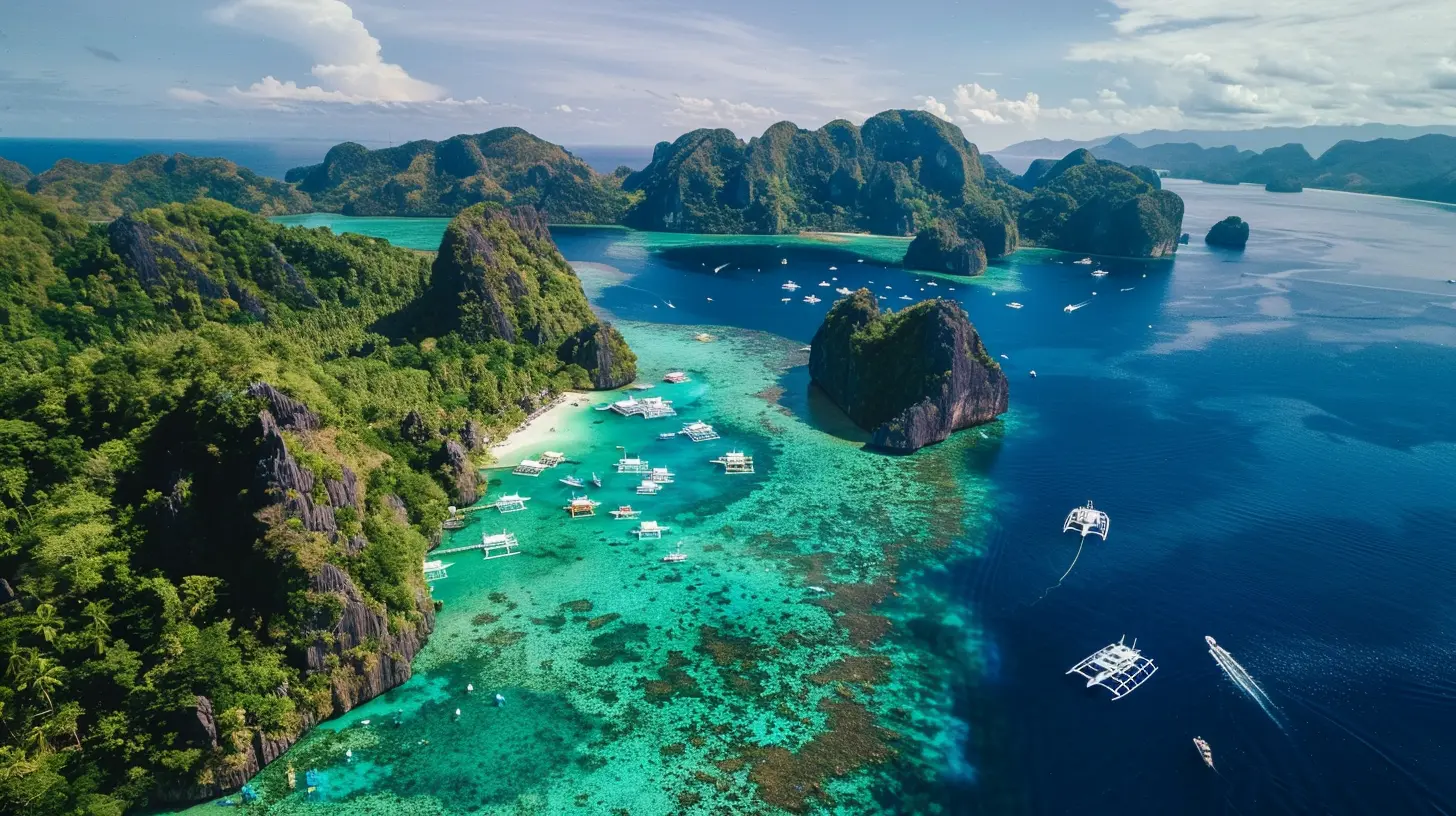
🌎 The Bigger Picture: Ocean Conservation & Responsible Travel
Island hopping is fun, but never forget the bigger picture—your travels impact the planet. Every choice, from the tour company you choose to the sunscreen you wear, affects marine biodiversity.Small Changes, Big Impact
- Share your knowledge with fellow travelers- Support conservation organizations financially
- Reduce your carbon footprint by flying less and using public transport
- Be an advocate on social media for responsible tourism
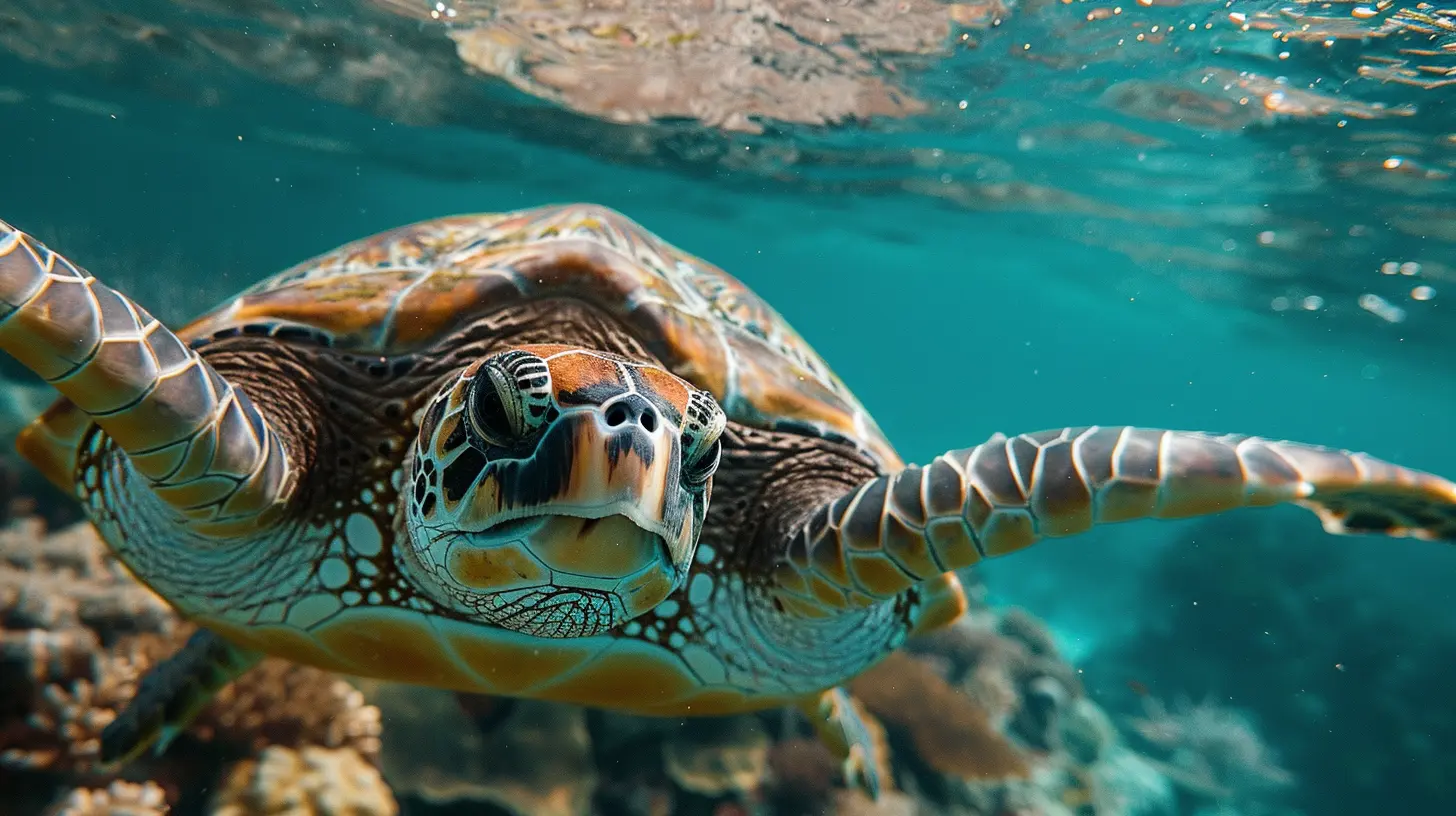
Final Thoughts
Traveling as an eco-tourist isn’t just about enjoying the ocean—it’s about ensuring future generations can do the same. By making mindful choices, you’re not just island hopping; you're becoming part of a global movement to protect marine life.So, next time you pack your bags for a dreamy island getaway, remember: Adventure and conservation go hand in hand. The ocean has given us so much—it's time we give back. Are you ready to make a difference?
all images in this post were generated using AI tools
Category:
Island HoppingAuthor:

Reed McFadden
Discussion
rate this article
2 comments
Remington Carter
What a fantastic guide! Exploring marine biodiversity while island hopping sounds like the perfect adventure for eco-conscious travelers. Can't wait to dive in!
June 20, 2025 at 3:20 AM

Reed McFadden
Thank you! We're thrilled you enjoyed the guide. Happy island hopping and exploring our oceans!
Zevonis Beck
This article beautifully highlights the importance of marine biodiversity and the role of eco-tourism in conservation efforts. Your detailed island-hopping guide not only informs travelers but also inspires a greater appreciation for our oceans. Thank you for promoting sustainable tourism practices that protect these vital ecosystems!
June 18, 2025 at 4:43 AM

Reed McFadden
Thank you for your kind words! I'm glad to hear that the article resonates with you and promotes appreciation for marine biodiversity and sustainable tourism. Your support helps raise awareness for these vital ecosystems!
